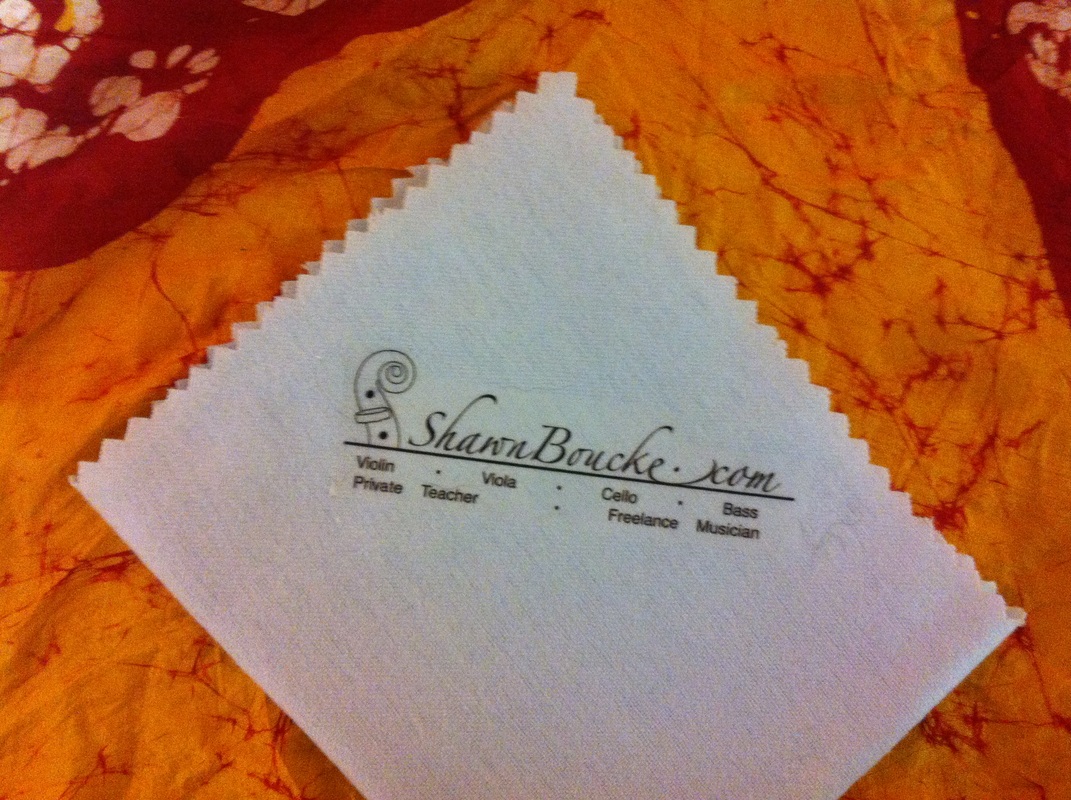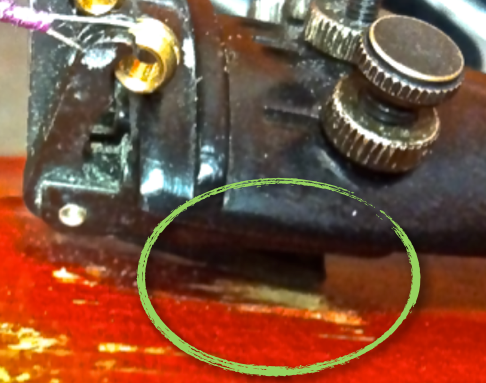Basics
- Always keep your violin clean of rosin, and other debris. Besides just looking gross the rosin can actually eat away at the instrument and the strings. You can clean your instrument with a lint-free cleaning cloth, or even an old T-shirt will work.
|
- Keep your violin away from extreme weather. This includes windows, heaters, and A/C units. Your instrument likes a specific humidity level. If is gets too dry the wood could crack. I strongly suggest everyone have a humidifier in their case during the winter months.
- Do not put your violin, or viola away with the shoulder rest still on. The pressure that will be put on the bridge could cause it, or the instrument itself to break.
Getting ready to play
- Always tighten your bow before you play. Your bow should only be tightened to about the width of a pencil.
- You do NOT need to scratch up your rosin ever. Many students are told to scratch their rosin with sand paper, a paper clip, or even the back of their bow. This is completely unnecessary, and does nothing but waste rosin. I wrote a blog post about it going into more detail.
- Try to not touch the bow hairs with your hand. The natural oils on you skin will make the hair unplayable. No matter how little you touch the hair, it is always a good idea to get the bow re-haired once a year.
- Shoulder rests are a fantastic invention, but make sure the rubber feet are not ripped. The metal legs could scratch the violin.
Don't be afraid
There are a lot of "don'ts" for how to care for your instrument. Stay calm, your instrument is not going to spontaneously explode. Think of it as a person. Nobody would want to sit in a 100 degree car for hours, and neither would your instrument.
Keep your instrument clean, and have fun!


